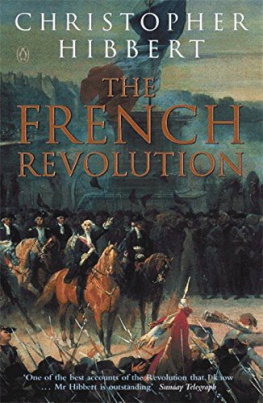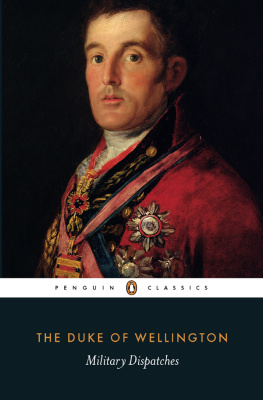Waterloo

Dedication
For James Leasor
Introduction
The French Revolution: Its Impact and Influence
On this day, at this place, said Goethe, a new era opens in the history of the world.
The day was September 20, 1792; the place, Valmy. Here, through the thin patches of a drifting mist, Goethe had seen the well-trained Prussian army of Frederick William II, officered by veterans of the Kings uncle, Frederick the Great, falter, halt, and turn aside, demoralized before the massed forces of the Revolution.
Goethe was right; a new era had opened at Valmy; and although that era seemed to close twenty-three years later at Waterloo, in fact it was never to close. The French Revolution, by its early military success, succeeded in imposing its view on the civilized world; and by the methods used to achieve that success it imposed on the civilized world the barbarism of total war.
On the day after Valmy, the French National Convention declared that the monarchy was abolished; and a few hours later, on September 22, there dawned the first day of Year One of the Republic. Before Year One was out, the head of Louis XVI was held up by Sanson to the crowds at the foot of the guillotine.
The Prussian commander, the Duke of Brunswick, had threatened to destroy Paris should any harm come to the King; but now that Louis was dead, the threat was turned. The kings in alliance try to intimidate us, Danton called back defiantly. We hurl at their feet, as a gage of battle, the French kings head.
The reaction of Europe to this fierce provocation was immediate. Within less than a fortnight France found herself at war not only with Prussia and Piedmont but also with Spain, Holland, England, and the Austrian Empire.
Out of this threat to Republican France besieged by the armies of Europe, impugned by plotting migrs, and torn apart from within by political and religious forces unsympathetic to the spirit of the Revolution was born the Terror.
But while Terror reigned in France, while in Paris alone well over two thousand heads fell into the guillotines basket, the French Republic, dominated for one cataclysmic year by Robespierre, astonished the world by its military success. Between July 28, 1793, when the thin, precise, incorruptible, fanatical lawyer from Arras entered the Comit de Salut Public in his immaculate sea-green coat, and July 28, 1794, when the guillotines blade cut through his neck already blood-smeared from a shattered jaw, the forces at the Jacobins command achieved a series of triumphs that rocked every throne in Europe.
For the war that was fought for the life of the Republic was a war fought, too, for France. The Revolutionary troops marched into battle, singing the Marseillaise, a hymn not only of freedom but an exultation in le jour de gloire. Patriotism surged in a country where, for the first time in her history, the common people felt a common cause, where libert, galit, fraternit were words of new meaning, at once an inspiration and a source of pride. And with this nascent pride, this reorientated patriotism came ambition and the desire to conquer. Fraternit began to be forgotten; victoire took its place. Where, the ruling dynasties asked each other in concern, would the Revolution end?
By the beginning of 1795 the Republic seemed safe, even invincible, and the way was prepared for expansion. The worst of the royalist uprisings had been suppressed; Toulon, which had surrendered to the English the year before, had been recaptured; the Hanoverians had been defeated at Hondschoote, and the Duke of York forced to retreat to Furnes, abandoning the siege of Dunkirk; the Piedmontese had been driven back from Aigueville on to the Mont Cenis Pass. Lazare Hoche had forced Wurmser back across the Rhine; at Fleurus, Jean-Baptiste Jourdan had overwhelmed the Austrians and driven them back through Lige; Belgium had been reconquered, and the way prepared for Charles Pichegru to overrun Holland.
They were young these Revolutionary generals, inexperienced, impromptu and roturier: Pichegru, the son of a laborer, was thirty-three; Jourdan, a peacetime silk mercer, was thirty-two; Hoche, who had once been a groom in the royal stables and a private in the Gardes franaises, was twenty-six. Yet within three years they had defeated Europe.
This had not been done by the vital spirit of the Revolution alone, nor yet by virtue of their own considerable talents. They had been helped by the veterans of the old royal army, by the officers of the less aristocratic and more scientific corps of artillery and engineers, who had stayed with their regiments, accepting the Revolution, while noble officers were deserting in protest against it. They had been helped, too, by the relatively good standard of their firearms the 1777 model of the flintlock musket remained unchanged until 1840, while their light and simple field guns, though smoothbore and muzzle-loading, were the best in Europe. But above all, these young generals owed their success to the leve en masse, universal conscription that could bring into the field well over a million men, and to the brilliant soldier who had shown that this unwieldy and callow host could overcome the more carefully drilled and far more experienced armies of the old European powers.
Lazare Nicolas Marguerite Carnot was born in Burgundy in 1753. When the Revolutionary Wars broke out he was a captain in the engineers. In 1794 he was still a captain; but as the member of the Comit de Salut Public, charged with the direction of military affairs, he had become the inspiration of the national defense, the organizer of victory.
His achievements, eclipsed today by the fame of the man whose rise to supreme power depended on them, were indeed astonishing.
When the Revolution began, the French army considerably smaller than the Austrian, slightly larger than the Prussian had a wartime strength of 295,000 men, including 76,000 militia and 23 regiments of foreigners, all recruited by voluntary enlistment. Pay was meager (six sous a day); food was often inedible; the hospitals were primitive; and accommodation in the barracks was so limited that soldiers frequently had to sleep three in a bed. No one could be surprised that the type of man enlisted was, as often as not, undesirable, nor that an average of 20,000 men were lost each year through disease and desertion. Discipline was maintained by means of various degrading forms of punishment on the Prussian model. Regimental officers were drawn from the families of the lesser nobility, and promotion from the ranks was virtually impossible.
There were, however, strong compensatory influences, which saved the army from disintegration when the Revolution brought such severe strains to bear upon its loyalty: despite his conditions the French infantryman and cavalry soldier remained cheerful and lively, respecting and trusting his skilled and experienced noncommissioned officers; the artillery was universally recognized as being better than that in any other army; while the engineers, for whose guidance Captain Carnot had written various papers and manuals, were also unsurpassed in knowledge, ability, and self-respect.
When war came these virtues in the French army were not by themselves enough, of course, to withstand the shock of a Europe roused in arms against the Republic. In August of 1791 the Assembly was compelled to call for volunteers sufficient to form 169 new battalions; but although men all over France rushed to enroll themselves, the early enthusiasm was soon dispelled, and eventually only 60 disorderly battalions took to the road. Two years later, after the execution of the King had brought the enemies of the Republic across its frontiers, far more drastic measures were required and required immediately to drive them back.














